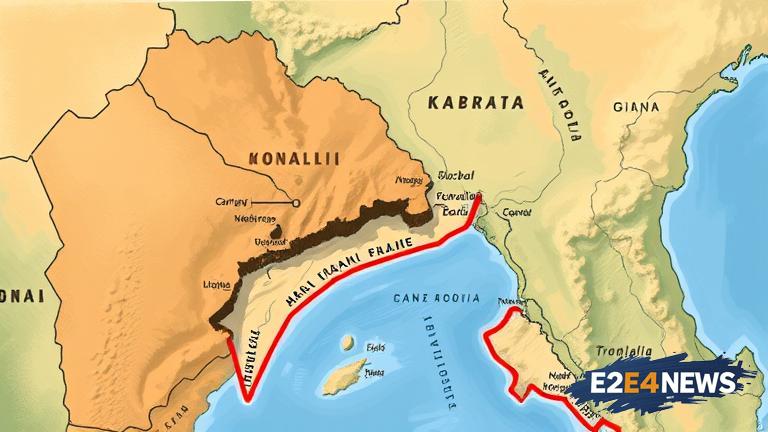The border dispute between Thailand and Cambodia is a complex issue that has been ongoing for many years. The two countries have been at odds over a stretch of land along their shared border, with both sides claiming ownership. The dispute centers around the Preah Vihear temple, a ancient Hindu temple that is located on the border between the two countries. The temple is a source of national pride for both Thailand and Cambodia, and both countries have claimed it as their own. The dispute has led to numerous clashes between the two countries, with both sides accusing each other of aggression. In 2008, the dispute escalated into a full-blown conflict, with both countries deploying troops to the border. The conflict resulted in the deaths of several soldiers and civilians, and caused significant damage to the temple and surrounding areas. The dispute has also had a significant impact on the local economy, with trade and tourism between the two countries being severely affected. Despite numerous attempts at negotiation, the dispute remains unresolved. The Thai government has claimed that the temple is located on Thai soil, while the Cambodian government has argued that it is located on Cambodian territory. The dispute has been further complicated by the fact that the border between the two countries has never been formally demarcated. The International Court of Justice has ruled in favor of Cambodia, stating that the temple is located on Cambodian territory. However, the Thai government has refused to recognize the ruling, and the dispute remains ongoing. The situation has been further complicated by the fact that the temple is a UNESCO World Heritage site, and any damage to it could have significant cultural and historical implications. The dispute has also had a significant impact on the relationship between the two countries, with both sides accusing each other of aggression and provocation. The Thai government has accused the Cambodian government of trying to exploit the dispute for political gain, while the Cambodian government has accused the Thai government of trying to undermine its sovereignty. The dispute has also had a significant impact on the local population, with many people being forced to flee their homes due to the conflict. The international community has called for calm and restraint, and has urged both sides to negotiate a peaceful resolution to the dispute. The United States, China, and other countries have offered to help mediate the dispute, but so far, no agreement has been reached. The dispute is a reminder of the complex and often fraught nature of international relations, and the need for countries to work together to resolve their differences peacefully. The situation remains volatile, with both sides refusing to back down. The dispute has also had a significant impact on the regional security, with other countries in the region being drawn into the conflict. The Association of Southeast Asian Nations (ASEAN) has called for a peaceful resolution to the dispute, and has offered to help mediate the conflict. The European Union has also called for calm and restraint, and has urged both sides to negotiate a peaceful resolution. The dispute is a reminder of the importance of diplomacy and negotiation in resolving international conflicts, and the need for countries to work together to promote peace and stability in the region.
